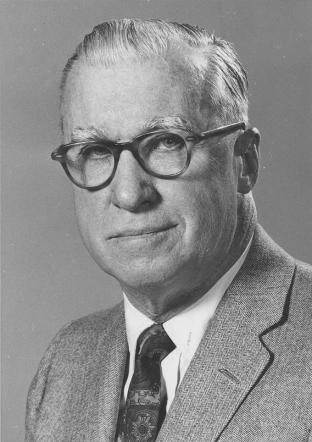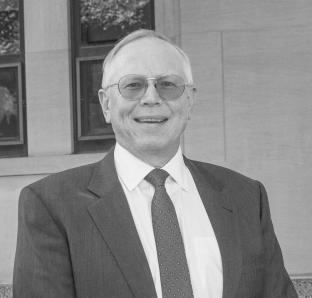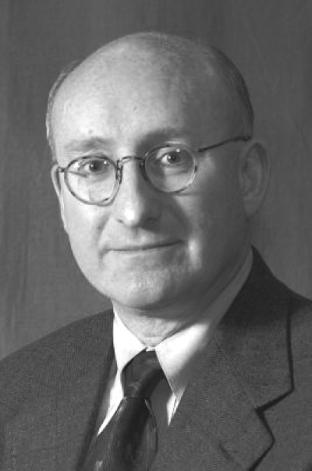Modern urology at U-M begins with the arrival of Hugh Cabot, MD
The Cabot Era (1919-1930)
Origins of the Specialty
“I saw many technological advances during my time with the Department of Urology. It was an amazing period of transformation. We went from just basic nothing to the innovation of robotic surgery and other new technologies. A lot has happened in the last 100 years, that’s for sure. There have been advances in nephroscopy, ureteroscopy, laparoscopy, extracorporeal shockwave lithotripsy, cryoblation, prosthetic surgery and robotic surgery.”
Also happening in the world in 1919
- Woodrow Wilson was the 28th president of the United States.
- The signing of the Treaty of Versailles marked the official end of World War I.
- Prohibition was ratified by ¾ of the states.
- Women in America were granted the right to vote when Congress passed, and one year later ratified, the 19th Amendment.
- Modern medicine had yet to make the discovery of penicillin to treat complex bacterial infections.
Also happening at Michigan Medicine
- 1919: Urology at the U-M remained an evolving branch of medicine under the Department of Surgery.
- 1919: Revered educator and researcher Victor Vaughan, MD, PhD, was dean of the University of Michigan Medical School.
- 1921: U-M establishes Pediatrics as an independent department.
- 1922: U-M pediatrician David Murray Cowie introduces iodized salt as a goiter preventive.
- 1925: The new 700-bed University Hospital (also known as the Main Hospital) replaces the Catherine Street Hospital.
- 1928: University Hospital offers the first physician training program in thoracic surgery.
The Nesbit Era (1930-1968)
The Formative Years
The specialty of urology becomes a section of the U-M Department of Surgery
1931
Nesbit and Cabot publish paper on undescended testicles
1937
The Babcock Urological Endowment fund is established
1943
Nesbit's 1943 textbook Transurethral Prostatectomy becomes the standard in the United States
1955
Nesbit establishes a pioneering hemodialysis unit at the University Hospital
1967
Nesbit is president of the American College of Surgeons
“The important scientific and clinical advancements I witnessed during my time with the department were made possible by the most creative team of urologists in the country. It’s important for us to recognize that the surgical techniques we put forth were unthinkable to some, but almost everyone emulated what we were doing at the University of Michigan.”
Before meeting Dr. Nesbit, I did not really know why I was becoming a doctor. Dr. Nesbit helped bring me closer to the mission of patient care and opened my eyes to the joy and reward of teaching. I remember him saying, ‘I hope you will enjoy the stimulating privilege of teaching other young people in the field. It is our obligation.’
Also happening in the world in 1930
- Herbert Hoover was the 31st president of the United States.
- Adolf Hitler and the Nazi Party were gaining momentum in Germany.
- The Great Depression was underway in the United States.
- Modern medicine watched as blood transfusions emerged from the range of experimental medicine. Tuberculosis and polio remained devastating diseases.
- Urology witnessed the introduction of transurethral resection surgery to treat urinary problems due to an enlarged prostate.
Also happening at Michigan Medicine
- 1930: In just two years, U-M physicians would perform the world’s first successful lung removal.
- 1940: U-M creates the first human genetics department in the United States/world.
- 1950: The U-M Women’s Hospital opens its doors.
- 1959: The U-M Burn Center is created—the first dedicated burn unit in Michigan and one of the first in the U.S.
The Lapides Era (1968-1983)
A New Era Brings Innovation and Change
Novel methods emerge in the management of urological conditions
1971
Clean intermittent self-catheterization is introduced by Lapides
1983
Carol Bennett, MD, becomes the first female urologist trained at the University of Michigan
I am very glad and proud to say that not only did I witness many firsts in the practice of urology, but I was also able to participate in many firsts, including the introduction of the intermittent catheterization program which was the brainchild of Jack Lapides. If Jack had not died, he probably would have received the Nobel Prize for that.
The Department of Urology has become one of the finest programs in the country. It has influenced standard of care and residency training for others across the country.
Also happening in the world in 1968
- Lyndon Johnson was the 36th president of the United States.
- Apollo 8, the second manned spaceflight mission flown in the United States, was launched for manned lunar orbit.
- Civil rights activist Martin Luther King, Jr., and U.S. Senator Robert F. Kennedy were assassinated just two months apart.
- Modern medicine saw advancements in cancer detection, radiotherapy and chemotherapy.
Also happening at Michigan Medicine
- 1968: U-M physicians performed the first heart transplant in Michigan at University Hospital.
- 1969: C.S. Mott Children’s Hospital opens as U-M’s first separate children’s hospital.
- 1972: U-M builds the James and Lynelle Perinatal Holden Hospital to care for premature and critically ill infants.
- 1976: U-M establishes the W.K. Kellogg Eye Center, a 32-bed facility that provides patient care, education and research in eye diseases.
The McGuire Era (1983-1993)
A Decade of Discovery
Advances in the understanding of urinary tract infection, urodynamics and pelvic surgery
1978
McGuire popularized the use of the rectus fascia pubovaginal sling for stress urinary incontinence
1989
McGuire initiated pressure-based management of neurogenic bladder, especially in children with spina bifida, with his identification of the leak pressure point
Our landmark achievements with the spinal cord injury fertility program are probably what stands out the most throughout my time. Men with spinal cord injuries, and paraplegics and quadriplegics are not able to function properly sexually, and one of the biggest downfalls of this is the inability to have children. In the early 1980s, one of our faculty, Carol Bennett, started working with induced electrical stimulation and was able to collect sperm from men. And, actually through artificial insemination, she created the first pregnancy in the United States from a man with a spinal cord injury via this induced procedure.
Also happening around the world in 1983
- Ronald Reagan was the 40th president of the United States.
- The Organization of the Petroleum Exporting Countries (OPEC) cut oil prices for first time in 23 years.
- Sally Ride became the first American woman in space on the shuttle Challenger.
- Magnetic resonance imaging and computerized tomography revolutionized medical imaging.
- Urology witnessed advances in the treatment of kidney stones and prostate cancer.
Also happening at Michigan Medicine
- 1985: The University Hospital and Taubman Health Care Center open.
- 1986: M-CARE is created by U-M and licensed by the state of Michigan; it is one of the first university-owned HMOs in the U.S.
- 1990: The expansion of U-M Hospitals continues with the opening of integrated services for children and women in 221,000 square feet of new space and renovated units in existing hospitals.
The Grossman Era (1993-1994)
Shifting Leadership
H. Barton Grossman, MD, is appointed interim chief of the section
1993
The Prostate Cancer Foundation is established to fund research in the prevention and cure of prostate cancer
I think I learned the most while working in Dr. Grossman’s laboratory. That was a real special place, and a highlight of my career. Dr. Grossman was a pioneer for basic cellular research in urology.
Also happening around the world in 1993
- Bill Clinton was elected 42nd president of the United States.
- Al Qaeda bombed the World Trade Center in New York City, killing six.
- Urology saw the evolution of laser technology in treating urological conditions.
Also happening at Michigan Medicine
- 1993: Horace W. Davenport, William Beaumount Distinguished Professor of H. W. Davenport Physiology, University of Michigan, authored “University of Michigan Surgeons, 1850-1970: Who They Were and What They Did.”
- 1993: The University of Michigan School of Nursing celebrated its 100th anniversary.
The Oesterling Era (1994-1997)
Urology Ranked #14 in the Nation
In just one year, the section advances from #24 to #14 in national rankings
1995
U-M is the recipient of an NIH/NCI SPORE grant in prostate cancer
1996
U-M Section of Urology is ranked #14 nationally by U.S. News & World Report
1996
A multidisciplinary urologic oncology clinic is established at U-M
We listen to patients’ concerns and then just fight like crazy to find the answer, working collaboratively with other providers in different specialties. We never stop looking for a solution and then we find it. And in the middle of all of that, we have created a culture for the patients and families in that they know we care about their kids like we care about our own kids. And that’s not sexy and fancy, but we do it better than anybody. That goes for the physicians, but we also have a team of nurses who are incredibly dedicated. We share constantly about the quality of care that we provide which is really second to none.
One of my most important contributions was in serving as a mentor and role model for women in urology. There weren’t many women on faculty. We were starting to have more women on faculty. Diversity in the residency pool. Balance and honesty. Carol Bennett may have been the first women to finish. There were very few women of color in Urology, particularly women who would be successful in academic medicine. Carol paved some of the way. I was the first tenured female faculty member in Michigan Urology. At Michigan for 21 years between training and being on faculty – I’ve seen ups and downs as resident and faculty.
Also happening around the world in 1994
- U.S. troops invaded Haiti to restore power to deposed President Aristide.
- AIDS became the leading cause of death for Americans ages 25 to 44.
- Urology witnessed the identification of sildenafil (Viagra) for treating erectile dysfunction.
Also happening at Michigan Medicine
- 1994: Giles Bole, MD, served as dean of the University of Michigan Medical School.
- 1997: The U-M Board of Regents officially approves “University of Michigan Health System” as a designation for the U-M Hospitals and Health Centers, Medical School, M-CARE and Michigan Health Corp.
- 1997: U-M moves its cancer and geriatrics clinical and research programs into the $88 million Cancer Center and Geriatrics Building.
The Montie Era (1997-2007)
Urology Emerges as Independent Entity
The creation of the U-M Department of Urology
1999
Montie reorganizes preceptor-type resident rotations and add research year
2001
The U-M Section of Urology becomes an independent department
2002
Additional endowed chair is created: Lapides Professorship
2006
Additional endowed chair is created: Bloom Professorship
2007
Creation of an outcomes research group that becomes the Health Services Research Division
2008
The Health Services Research Division is renamed Dow Health Services Research, thanks to a generous gift from the Herbert H. and Grace A. Dow Foundation
Dr. Montie will always be my moral compass as a physician and scientist. Whenever I’m not sure what to do, I always ask myself, ‘What would Jim Montie do in this situation?’ I think that says something about his principles as a leader.
When Jim Montie became chair he had a culture change to take on. Culture of today came with Jim Montie. Transparency, integrity, honesty, and put the patient first. Develop more clinical innovation and growth. He recruited me back out of fellowship.
The most important thing I took with me from my training was good judgment. Our faculty taught us how to make decisions that were in the best interest of our patients, and which were grounded in integrity and compassion. Gary Faerber, Jim Montie and Stu Wolf were outstanding mentors. It was clear that our department recruited aspiring urologists who not only had brains and skill, but also collegiality and true concern for people.
Also happening around the world in 1998
- Missile attacks were launched by the United States against Al-Qaeda camps in Afghanistan in retaliation for bombings of American embassies in Kenya and Tanzania.
- Google Inc. was founded by Stanford University PhD candidates Larry Page and Sergey Brin.
- Senator John Glenn traveled into space on space shuttle Discovery, making him the oldest (age 77) astronaut.
- Exxon bought Mobil in a $73.7 billion deal, creating Exxon-Mobil, the world’s largest corporation.
- James Thomson, PhD, and John Gearhart, MD, University of Wisconsin-Madison, isolated and grew human embryonic stem cells.
- Less invasive procedures continued to replace open surgery for many urological conditions.
Also happening at Michigan Medicine
- 1998: Michigan Medicine moved its cancer and geriatrics clinical and research programs into the $88M Cancer Center and Geriatrics Building, and established the Center for Gene Therapy.
- 1999: The U-M Department of Emergency Medicine is created.
- 2003: The U-M Medical School implements a new curriculum that integrates biomedical, clinical and psychosocial sciences with clinical skills and professionalism.
- 2004: The U-M Health System announces its largest gift—$44 million from Bill and Dee Brehm for the Brehm Center for Diabetes Research in the new tower at the Kellogg Eye Center.
- 2006: The East Ann Arbor Ambulatory Surgery and Medical Procedures Center, Rachel Upjohn Building (including the U-M Depression Center) and Biomedical Science Research Building open.
The Bloom Era (2007-2019)
Forging a National Reputation
Advancing urological research, patient care and education
2002
Bloom receives the Jack Lapides Endowed Professorship in Urology
2007
Yearly Chang Lecture on Art and Medicine
2015
Hamilton Community Health Network (a federally qualified health center) pediatric urology clinic in Flint begins on a quarterly basis. Now weekly in all aspects of urology.
2017
West Shore Urology practice in Muskegon joins U-M Department of Urology
2018
U-M Department of Urology ranks #5 in nation, U.S. News & World Report
“Dr. Bloom was never the type of leader that asked, ‘Can we do this or how can we pay for this?’ Instead, he said, ‘Why not? We’ll figure out what the right thing to do is.’ If someone said, ‘I’m not sure we can afford it,’ Dr. Bloom would say, ‘That’s my problem. You keep dreaming and you keep growing.’ He challenged us not to think too small.”
In July of my fourth year of medical school, I signed up to work with Dr. Bloom. And that changed my career trajectory completely. After that, every time I was at a crossroads of decision making about what I should do next, I would say, ‘What would Dr. Bloom do? How do I become more like Dr. Bloom?’
Also happening around the world in 2007
- George W. Bush served a second term as president of the United States.
- World stock markets plummeted after China and Europe released less-than-expected growth reports.
- The Great Recession began in the United States.
- Apple introduced the first smartphone, the iPhone.
- J.K. Rowling completed the 7th and last Harry Potter book, Harry Potter and the Deadly Hallows.
- The hashtag was created and first used in a tweet.
- Modern medicine watched as researchers discovered a gene involved in rheumatoid arthritis.
- Urology observed the publication of the first histotripsy survival preclinical animal study.
Also happening at Michigan Medicine
- 2007: The U-M Samuel and Jean Frankel Cardiovascular Center opened for heart, vascular and stroke care for adult patients.
- 2009: U-M purchases the former Pfizer campus in northeast Ann Arbor, names it the North Campus Research Complex, and begins converting it into a vibrant hub for staff and scientists from UMHS and other areas of the University.
- 2011: U-M Board of Regents approves Department of Cardiac Surgery, Computational Medicine and Bioinformatics Department, and the Institute for Healthcare Policy & Innovation.
- 2014: U-M Medical Group of the U-M Health System formed from the Faculty Group Practice.
- 2015-16: U-M Board of Regents appointed Marschall S. Runge, MD, PhD, Executive Vice President for Medical Affairs and CEO of Michigan Medicine (March 2015) and Dean of the Medical School (January 2016).
- 2018: St. Joseph Mercy Chelsea Hospital joint venture with Michigan Medicine begins led by Alon Weizer, MD and Casey Dauw, MD. Brighton Center for Specialty Care opens with six operating rooms and 23 hour stay as well as a urology clinic 5 days a week with medical director John Wei, MD.
The Palapattu Era (2019)
The Start of a New Century
A renewed focus on discovery, wellness, diversity and philanthropy
Also happening around the world in 2019
- The 116th US Congress included a record-breaking 125 women in office.
- The UK is on the brink of leaving the EU with Brexit.
- Pope Francis arrives in Abu Dhabi, UAE to become the first pope to visit the Arabian Peninsula in February 2019.
- Venezuelan President Maduro cuts ties with the US as the country’s economic crisis worsens.
Also happening at Michigan Medicine
- 2019: Michigan Medicine named to Newsweek’s inaugural list of the World’s Best Hospitals 2019. The list recognizes the best 1,000 hospitals across 11 countries: U.S., Canada, Germany, France, United Kingdom, Switzerland, South Korea, Japan, Singapore, Australia and Israel.










